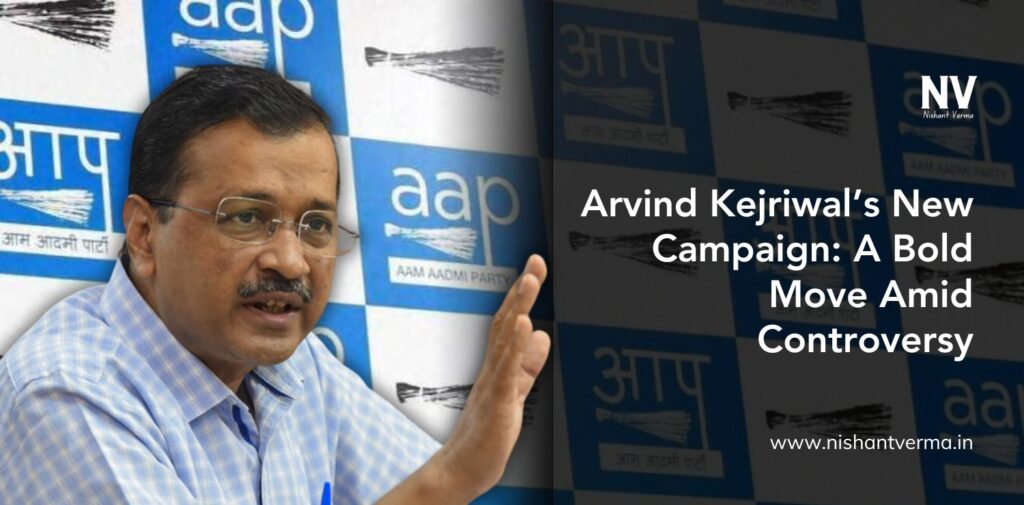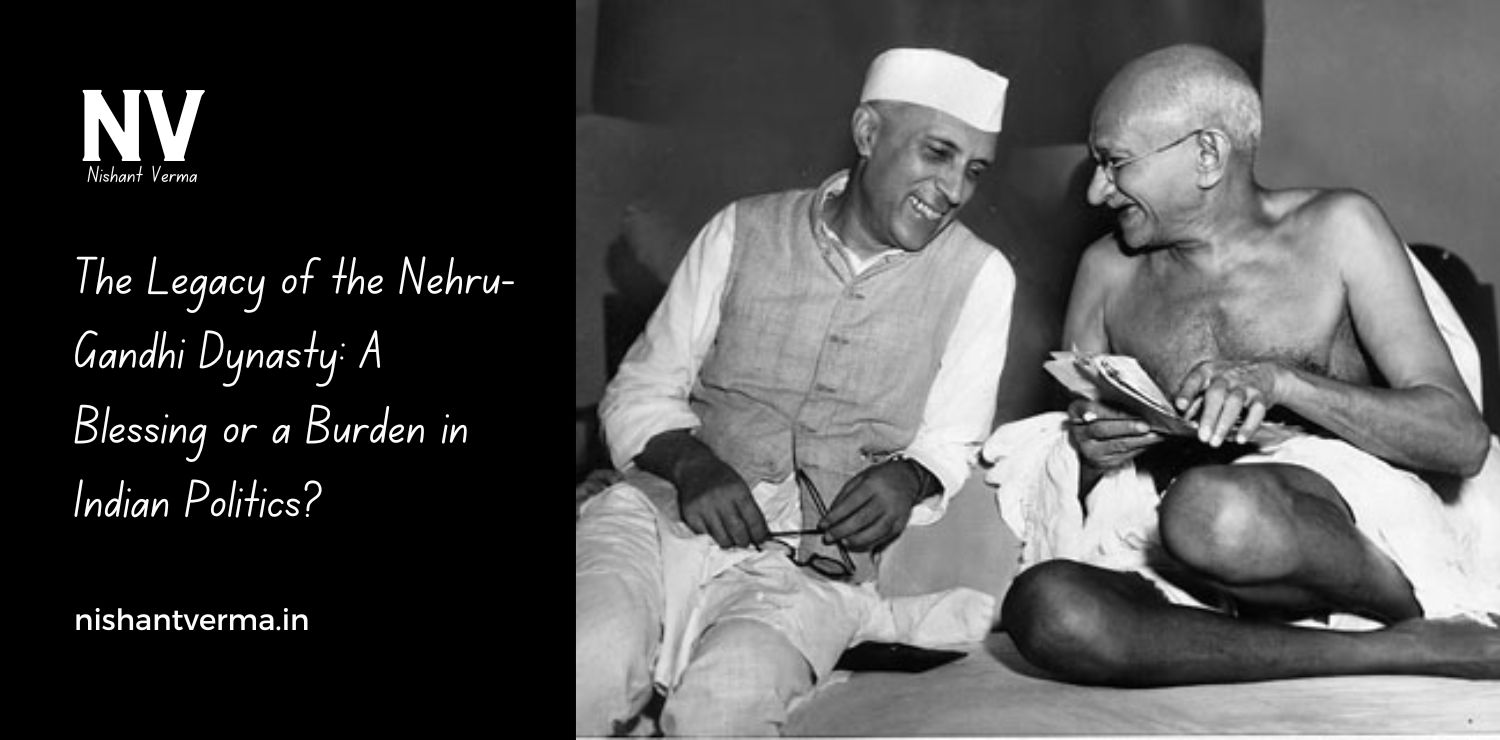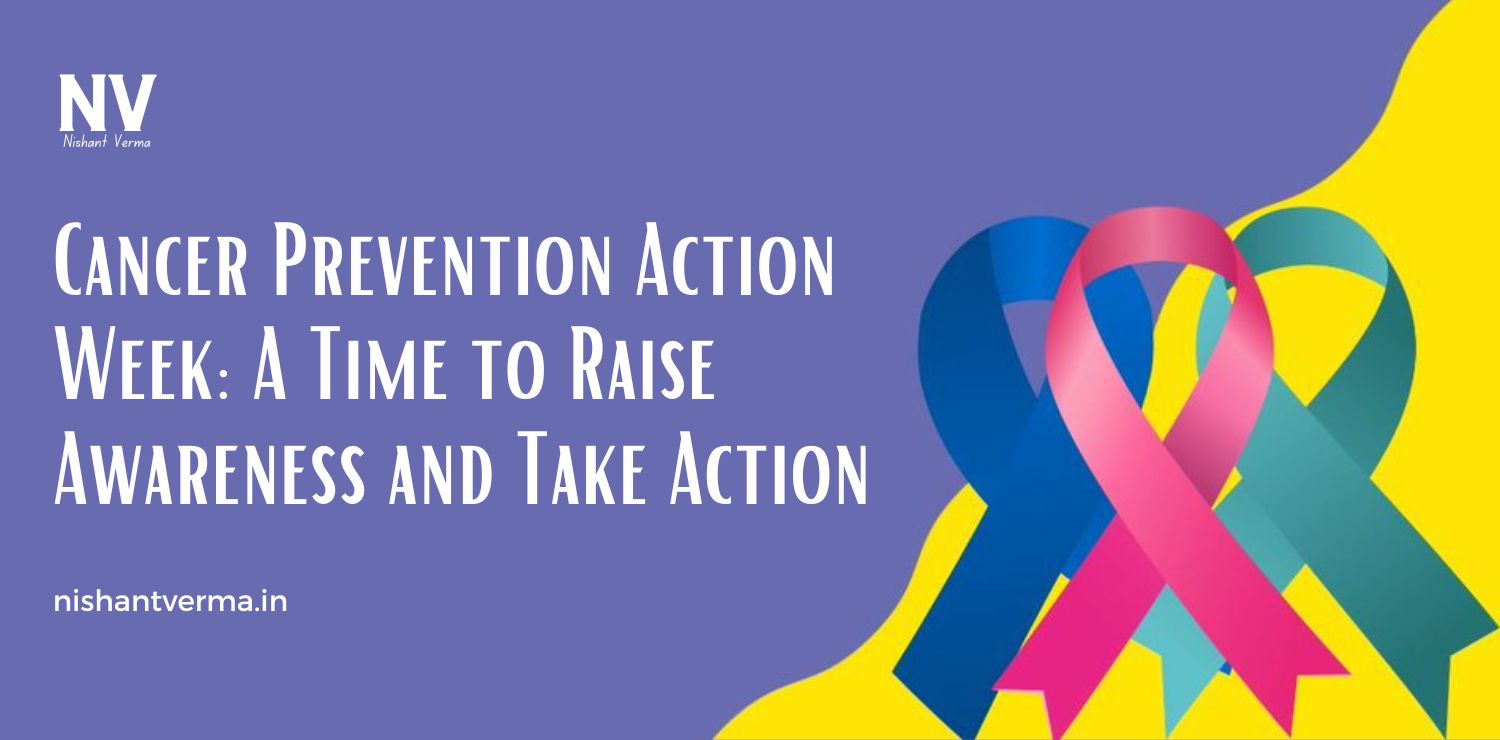Amid a cloud of accusations and legal troubles, the Aam Aadmi Party (AAP) has once again stepped into the spotlight with the launch of their new political campaign for the upcoming Delhi Assembly elections, bolstered by the slogan, “Kejriwal Aayenge.” This grand slogan, while meant to project confidence and a sense of inevitability about AAP’s victory, comes across as yet another attempt by the party to divert attention from the troubling controversies it is currently embroiled in. Instead of addressing the serious accusations faced by key figures in the party, such as former Deputy Chief Minister Manish Sisodia, AAP is focusing its energy on marketing tactics, trying to retain its political ground through an almost theatrical display of optimism.
While every political party engages in some level of damage control, what stands out here is how far the AAP seems to be willing to go in its quest to distract from the elephant in the room—Manish Sisodia’s legal battles and the deeper implications for the party’s so-called “clean politics” narrative. Let’s dissect this calculated move by the AAP to see why their campaign may be more of a smokescreen than a genuine call for voter confidence.
The Timing of the Campaign: A Desperate Diversion?
The timing of this new campaign couldn’t be more telling. With Manish Sisodia entangled in a web of allegations related to liquor policy irregularities and still battling for bail, AAP’s leadership finds itself in a precarious position. Sisodia’s case isn’t just a legal issue—it’s a public relations nightmare. Sisodia was one of the most visible faces of the party after Arvind Kejriwal, often heralded as a symbol of transparency and good governance. Now, with him caught in the storm, AAP’s credibility has taken a significant hit.
Rather than confronting these issues head-on, the party has seemingly chosen to go on the offensive by launching a new campaign. But here’s the catch: this campaign doesn’t aim to clarify or justify Sisodia’s actions or the liquor policy under scrutiny. Instead, it’s filled with the kind of vague optimism that Kejriwal’s party has become known for, aiming to assure voters that despite the ongoing controversies, AAP remains the party of the people. It’s almost as if they are saying, “Don’t look at the man behind the curtain—just trust that we have your best interests at heart.”
It’s a classic political strategy: when embroiled in controversy, double down on your strengths and try to drown out the noise of dissent. Yet, one can’t help but question the ethics of this move. Shouldn’t a party that claims to represent integrity be more forthcoming about the legal challenges it faces, instead of diverting attention with slogans and campaigns?

Arvind Kejriwal’s Leadership: Charisma Over Substance?
Arvind Kejriwal is, without a doubt, a political figure whose rise to prominence has been nothing short of remarkable. From his days as an anti-corruption crusader during the India Against Corruption movement, Kejriwal has fashioned himself as a man of the people, unafraid to take on the establishment. However, as the years have passed, there’s been a noticeable shift in his political tactics—from an emphasis on accountability and transparency to more populist rhetoric and clever marketing.
The new campaign’s slogan, “Kejriwal Aayenge,” plays into the cult of personality that Kejriwal has cultivated around himself. It is reminiscent of similar slogans from other strongman leaders around the world, who place themselves as the sole hope for their country or region. The subtext here is clear: Kejriwal will come to the rescue, regardless of the troubles his party is facing. The slogan banks on the idea that Kejriwal’s personal brand is strong enough to pull the party through its current woes, even as questions about the integrity of its leadership loom large.
But this leads to an important question—where is the substance? For a party that was once the torchbearer of transparency and accountability, there seems to be a growing tendency to gloss over serious issues with charisma rather than concrete solutions. The fact that the party’s new campaign is centered around Kejriwal rather than any policy or initiative is telling. Is this the party that once claimed to stand for radical change in Indian politics? Or has it become yet another political machine, focused more on winning elections than delivering on its promises?
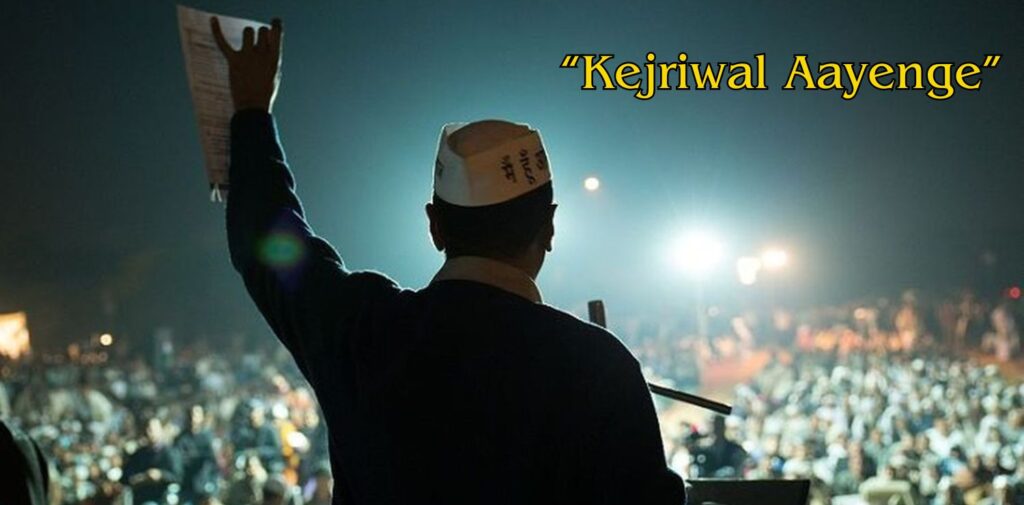
The Sisodia Saga: A Dark Cloud Over AAP
Manish Sisodia’s arrest and ongoing legal battle is a significant blow to AAP’s carefully crafted image. As one of the key architects of Delhi’s education reform and a close confidant of Kejriwal, Sisodia was often viewed as a man of integrity. His involvement in the alleged liquor policy scam, therefore, has left many supporters disillusioned. But instead of confronting the issue transparently, AAP has chosen to dig in its heels, portraying Sisodia as a victim of political vendetta rather than addressing the substance of the charges.
This is a dangerous game for the party to play. It’s one thing to claim political persecution—an argument that many Indian politicians have successfully used in the past—but it’s quite another to avoid addressing the specific allegations at hand. By shifting the focus to their electoral campaign and away from the Sisodia controversy, AAP risks looking like it has something to hide.
The longer the party delays an honest reckoning with these allegations, the more it undermines its own credibility. After all, this is the party that was supposed to be different—one that promised a new brand of politics, free from corruption and backroom deals. If AAP can’t hold its own members accountable, what separates them from the very political establishment they once vowed to uproot?
The Strategy Moving Forward: Is Denial Sustainable?
AAP’s decision to launch a new campaign while embroiled in such controversy is a risky one. On the one hand, it allows the party to shift the narrative away from its legal troubles and back to the electoral battlefield, where Kejriwal’s charisma has proven effective in the past. On the other hand, it suggests a level of denial that could backfire if the Sisodia case continues to gain traction.
The party’s current strategy seems to be built on the hope that Kejriwal’s personal popularity will be enough to carry them through the storm. But charisma can only take a political party so far. If AAP continues to sidestep accountability, it risks alienating not only its critics but also its base—those voters who believed in the party’s original promise of honesty and integrity in governance.
What remains to be seen is whether the voters will buy into this narrative of victimhood and deflection. Will they overlook the serious accusations against AAP’s leadership in favor of the party’s achievements in education and healthcare? Or will the unresolved legal battles and the air of opacity surrounding the party’s recent actions prove too much for even the most loyal supporters?
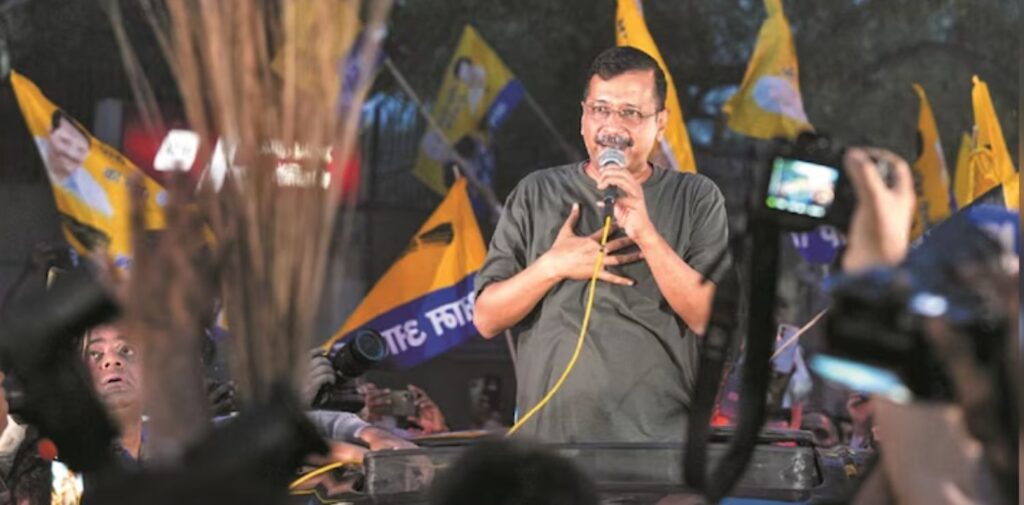
A Party at a Crossroads
As AAP launches into its latest campaign, buoyed by the slogan “Kejriwal Ayenge,” it is clear that the party is at a critical juncture. While Kejriwal’s leadership remains a significant asset, the controversies surrounding his closest allies, particularly Manish Sisodia, threaten to erode the very foundation of the party’s appeal.
AAP faces a choice: it can either continue down this path of diversion and denial, hoping that charisma and populism will be enough to secure victory, or it can return to the values that once made it a beacon of hope for millions of Indians. For a party that has built its brand on being different from the rest, the stakes couldn’t be higher. And as the Delhi elections approach, it will become increasingly clear whether AAP can rise above its current troubles or whether it will be consumed by them.
The clock is ticking for Kejriwal and his party. The question is—will “Kejriwal Aayenge” be enough, or will the weight of the unresolved scandals ultimately drag them down? Only time will tell.

